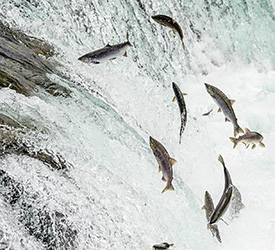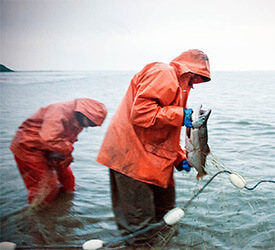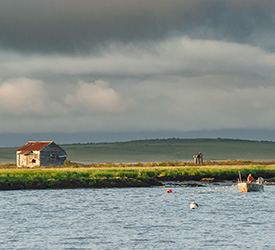SUSTAINABILITY FIRST
The Core of Fair Trade

Sustainable Fisheries
Sustainable fishing ensures that the health of the marine ecosystem remains intact. In turn, fishermen can maintain their livelihood for generations to come.
Sustainable Principles Include:
- Leaving enough fish in the ocean so that the fish population remains productive.
- Minimizing environmental impacts.
- Managing fisheries in a way that adapts to the changes in the environment.

Sustainable Environment
To participate in Fair Trade, fishermen must adopt responsible practices that protect the marine resources and their biodiversity. Over time, the goal is to help fisheries improve and meet international best practices.
These environmentally responsible practices help minimize the impact from the industry on the marine ecosystem and the health of the oceans.

Sustainable Jobs & Wages
Both fishermen and workers have more sustainable livelihoods when they have access to markets, business skills, safe working conditions and fair wages. Fair Trade standardizes wages and benefits. The wage requirements result in increased income and measurable economic change for fishers and workers.

Sustainable Communities
Fair Trade aims to bring economic development to impoverished, struggling communities. These communities are typically isolated by geography and face economic, social and environmental instability.
The Fair Trade model brings an influx of community funds that can be invested into local programs and infrastructure. The communities become less vulnerable to unpredictable market forces and improve their resiliency.
